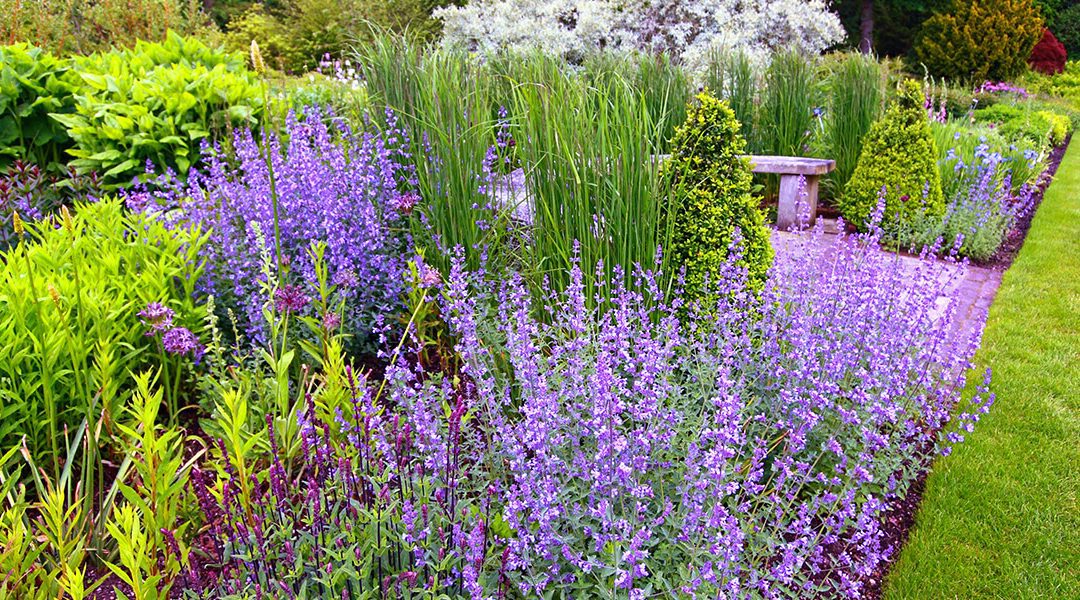As our gardens reach their full summer abundance, it’s a great time to see where we can add more perennials. Whether you follow the trends or set new ones, these perennials give you something special to bring to your garden!
Salvia
Salvia hails from the sage family and is a main attraction of the mid-summer perennial garden. They bloom with fragrant towers of purple-blue above a mass of green leaves. They’re a favorite of bees and other pollinators, who always benefit from a diversity of different flower shapes. Plus, they’re easy to grow and make excellent cut flowers. These drought-tolerant perennials thrive in sunny spots and well-drained soil.
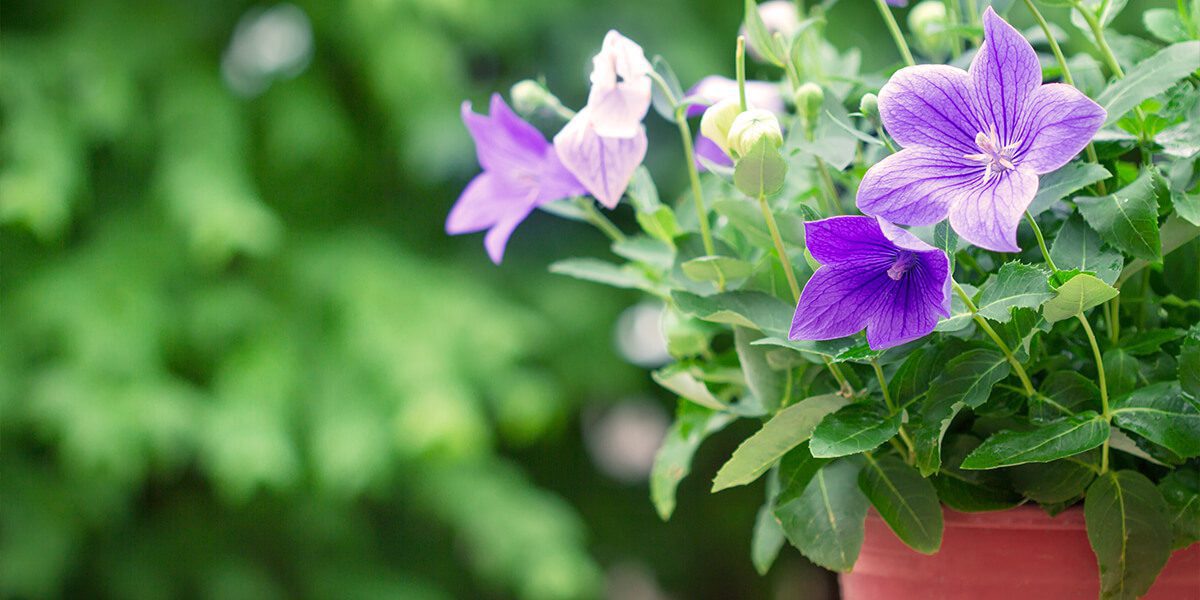
Balloon Flower
These perennials grow clumps of bell-shaped flowers, mostly in blue but also in pink and white. The name comes from the flower buds that expand like a balloon before bursting open. These perennials are low maintenance, not susceptible to many pests, and bloom throughout the summer months in full sun to part shade.
Many factors come into play when it comes to planting perennials in the garden, such as bloom times, textures, colors, heights, and fragrance.
A Note on Blue in the Garden: in impressionist paintings, painters used blue paint instead of black for the shadows. That small change helped create the vibrant color schemes that impressionist painters, like Monet and Van Gogh, are known for. Blue flowers have a similar effect in the garden, bringing complementary contrasts to warm oranges, yellows, and pinks.
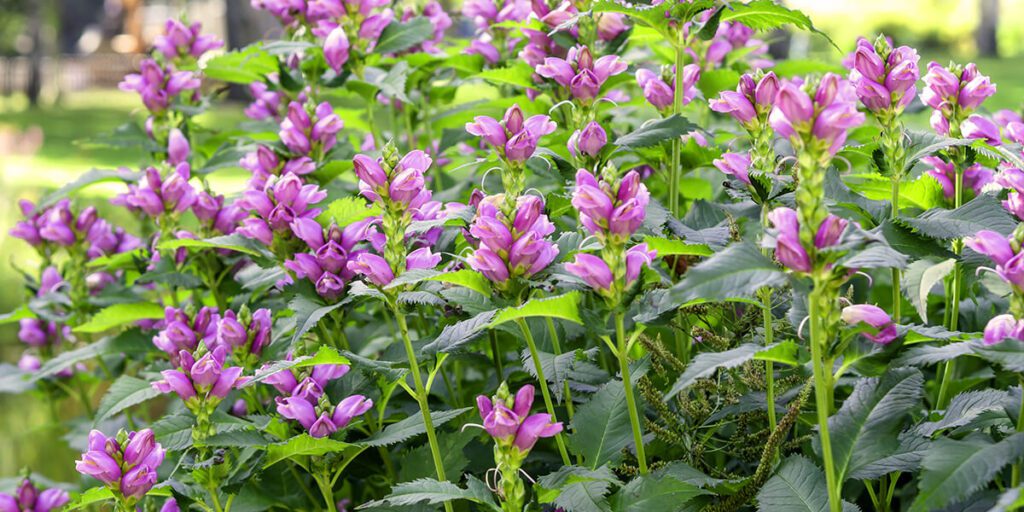
Chelone
This perennial blooms with clusters of small pink or white flowers that resemble a snapdragon. When the flowers open, they look like an animal with a gaping mouth or a turtle poking its head out of a shell—hence the name “chelone,” which is the Greek word for tortoise. And, just like turtles, they prefer damp environments! Chelones thrive best in rich, moist soil.
Several species of chelone are native to the United States, meaning they provide great food for pollinators and are even known to be a host plant for some species of butterflies, such as the endangered Baltimore Checkerspot. As they bloom in the late summer, they’re a great perennial to bring new color to late summer and bridge the gap into fall.
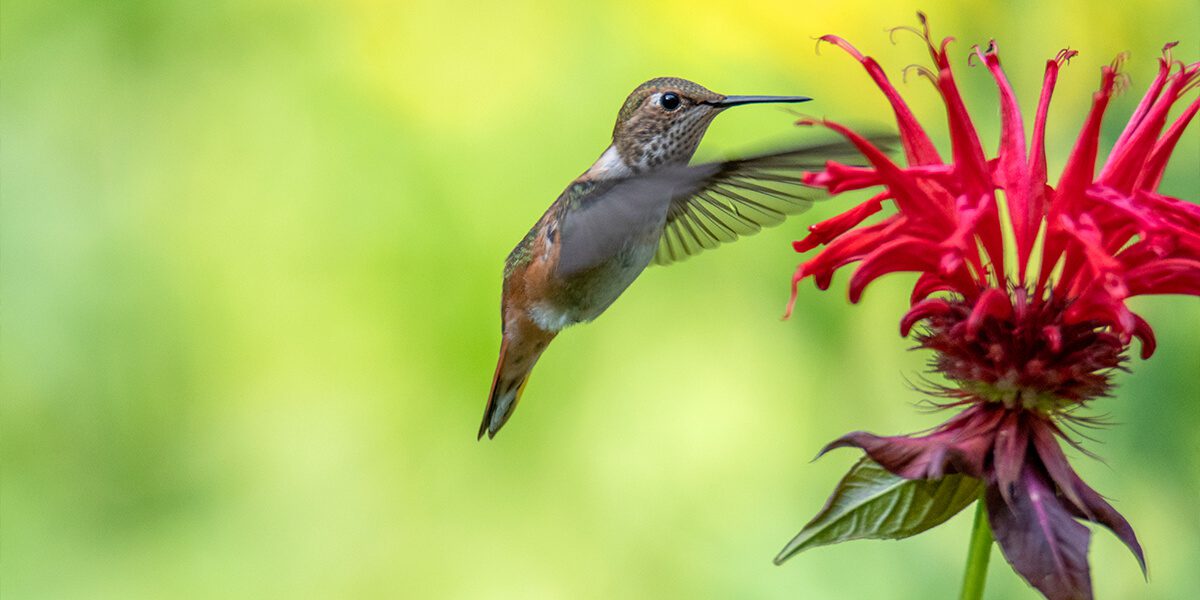
Bee Balm
Bee balm, also known as Monarda, is one of those wonderful perennials that you can often smell before you see it. The foliage has a fantastic fragrance that lingers in the breeze, drawing hummingbirds, bees, and butterflies to its colorful, nectar-rich flowers. Bee balm is an excellent plant for moist soils in sunny or part-shade areas. It is a fairly quick spreader and can cover a large area in a relatively short time, so “bee” prepared to divide it every few years or keep it in a large pot if you want to keep it contained to a small area!
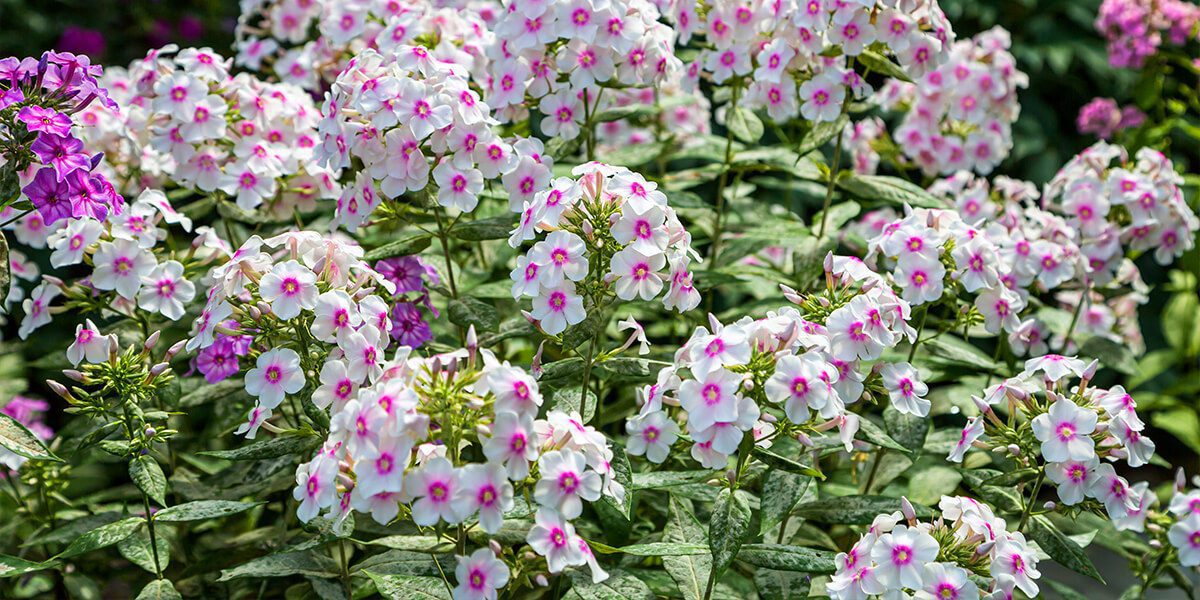
Phlox
What would the summer be without garden phlox? This ever-popular perennial is nothing new but is becoming a staple of summer 2021. The long-lasting flowers thrive in full sun or part sun and come in various colors, most commonly pink, lavender, salmon, purple, or white. A distinguishing trait is their brightness, captured in the name “phlox,” which means “flame” in Greek.
Many factors come into play when it comes to planting perennials in the garden, such as bloom times, textures, colors, heights, and fragrance. It’s the gardener’s role to weave all of the flowers together into a beautiful whole. These popular perennials each offer a special contribution to the landscape. They’re trendy now but will remain beautiful in your garden for years to come!
To view these flowers, and our full selection, visit our centros de jardinería in Chicagoland!
Platt Hill Nursery es el principal centro de jardinería y vivero de Chicago.
Información adicional
Shade-Loving Perennials
Sun-Loving Perennials That Are Easy to Grow
Las mejores plantas perennes de floración tardía
Las mejores plantas perennes para la zona 5

